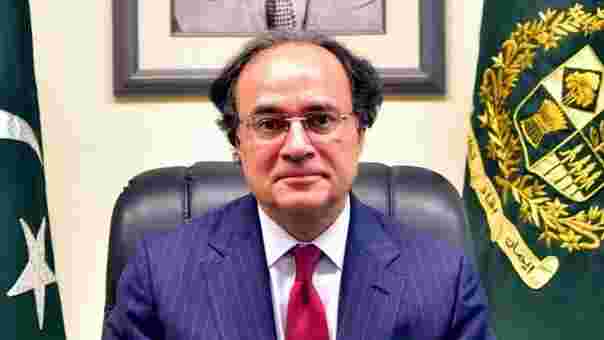Finance Minister Muhammad Aurangzeb clarified on Wednesday that the recent departure of some foreign companies from Pakistan stems largely from their global strategic decisions, not due to the country’s internal economic issues.
He emphasized that Pakistan’s macroeconomic indicators remain strong and continue to attract new foreign investments.
During an interview on national television, Aurangzeb stated that although certain multinational corporations have wrapped up their operations in Pakistan, several new investors are stepping in, particularly in sectors such as energy and digital services.
“These exits are part of broader global corporate strategies. While a few are leaving, others are entering the Pakistani market,” he explained.
The finance minister acknowledged that certain challenges still exist for foreign investors — including delays in dividend repatriation — but noted that the government has made considerable progress. “With economic stability improving, we have cleared $4 billion in backlog over the past two years,” he said.
Addressing environmental concerns, Aurangzeb noted that climate change continues to impact Pakistan’s economic outlook. “Before the recent floods, GDP growth was expected at 4.2%. However, the floods have likely reduced growth by 0.4 to 0.5 percentage points, with around 80% of the losses recorded in Punjab’s agriculture sector, especially in rice and cotton,” he highlighted.
He added that the government is prioritizing self-reliance in its response efforts. “Our rescue and relief operations are being financed entirely through domestic resources. Reconstruction, however, may require global assistance,” he remarked.
Aurangzeb further shared that Prime Minister Shehbaz Sharif has instructed Climate Change Minister Musadik Malik to devise a 300-day plan for climate resilience, as early monsoon patterns are anticipated next year.
On the fiscal front, the minister reported that tax collections from wholesalers and retailers doubled last year, alongside improved recoveries from the sugar, cement, and tobacco sectors.
He also mentioned that income tax relief has been provided to low- and middle-income salaried groups, with plans to extend the relief to additional sectors.
Aurangzeb confirmed that the government is moving toward deregulation of wheat and sugar prices, with a comprehensive wheat deregulation policy expected in 2026 — ending inter-provincial trade restrictions.
He concluded by noting that the World Bank has praised Pakistan’s tax reform initiatives, while Egypt’s finance ministry has expressed interest in knowledge-sharing to learn from Pakistan’s recent fiscal reforms.
